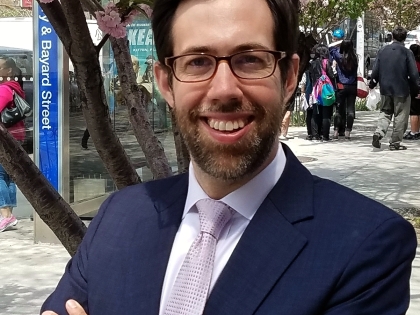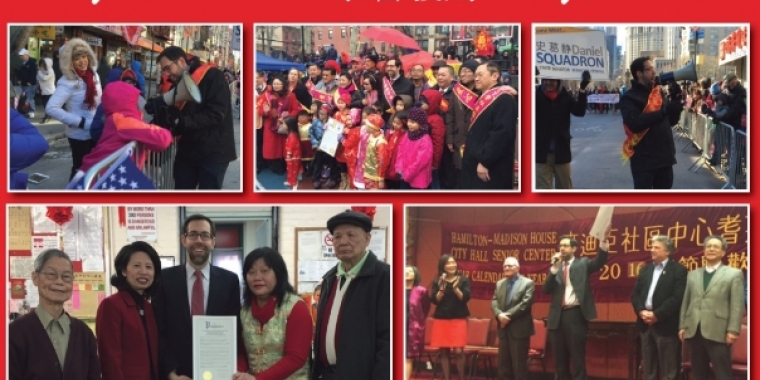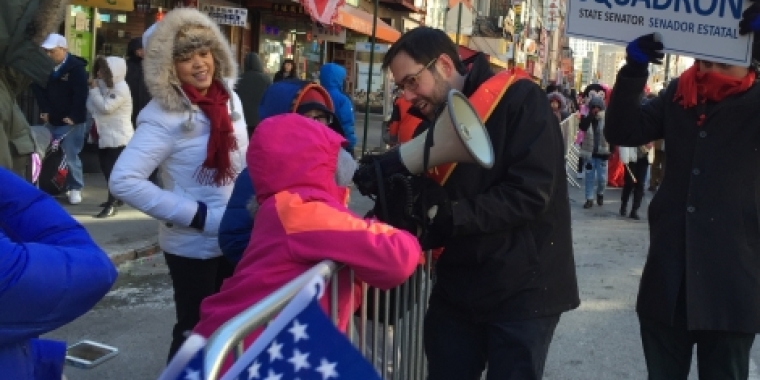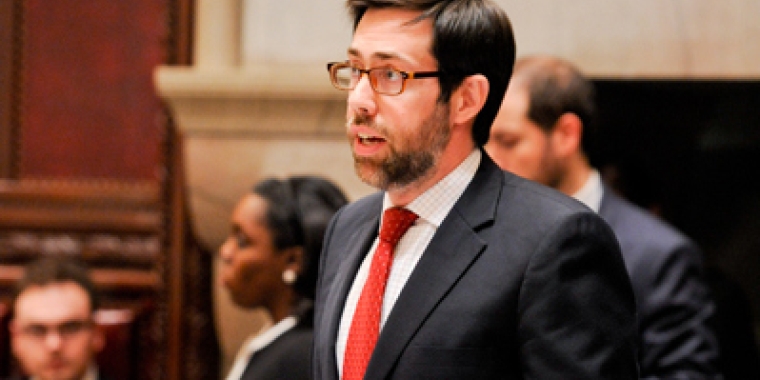
Senator Squadron Testimony About the NYCHA Draft Annual Plan, June 23, 2009
Daniel L. Squadron
June 22, 2009
TESTIMONY OF STATE SENATOR DANIEL SQUADRON REGARDING THE DRAFT ANNUAL PLAN FOR THE NEW YORK CITY HOUSING AUTHORITY, JUNE 23, 2009.
My name is Daniel Squadron and I represent the 25th Senate District in the New York State Senate. My district includes the Brooklyn neighborhoods of Greenpoint, Williamsburg, Vinegar Hill, Fulton Ferry, Brooklyn Heights, Cobble Hill, Carroll Gardens and Gowanus, and the Manhattan neighborhoods of Tribeca, Battery Park City, the Lower East Side, Chinatown, the Financial District, Little Italy, SoHo and the East Village.
Among the New Yorkers I represent are the residents of 24 New York City Housing Authority Developments. The Manhattan part of my district includes the Bernard Baruch Houses, Marianna Bracetti Houses, Pedro Albizu Campos, East 4th Street Rehab, First Houses, Samuel Gompers Houses, Rafael Hernandez Houses, Fiorello H. LaGuardia Houses, Lower East Side I, II, and III, Lower East Side Rehab, Max Meltzer Tower, Jacob Riis Houses, Henry Rutgers Houses, Seward Park Extension, Alfred E. Smith Houses, Two Bridges, Vladeck Houses, Lillian Wald Houses, and 45 Allen Street. In Brooklyn, I represent three developments: the Taylor Street-Wythe Avenue Houses, Williams Plaza, and Independence Towers.
NYCHA provides affordable housing for more than 400,000 New Yorkers. Its residents represent almost 5% of the population of New York City; in my district, the proportion is much greater. Its community centers provide services to seniors, children, adolescents, survivors of domestic violence and other populations in our city for whom services are vital.
NYCHA’s mission is not merely to provide housing for those hundreds of thousands of New Yorkers, but to provide decent, affordable housing in a safe and secure environment. With such an ambitious mission comes great responsibility—a responsibility that we all must do a better job of meeting.
Too often, NYCHA seems insufficiently responsive to the concerns of residents; my constituents routinely tell me that they have to jump through hoops to get attention for basic repairs and maintenance. I know from personal experience that hallways and lobbies can be left uncleaned, sidewalks cracked and unrepaired, and the elevators simply dangerous—elevator malfunctions can lead to tragedy, including the death of Jacob Neumann, a five-year-old child who lived in the Taylor Street-Wythe Avenue Houses. The elevators’ poor working condition means that many residents are rightfully anxious every time they leave or return to their homes.
I also have significant concerns about the process by which NYCHA promulgates new rules, some of which have a dramatic impact on the lives of residents. New rules about pets and about admissions eligibility were not subject to draft annual plan review, giving residents insufficient notice and no real opportunity for input. In the case of admissions criteria, residents and applicants were informed of new rules long after the rules went into effect, sending hundreds if not thousands of applicants down a dead-end path as they obeyed outdated eligibility criteria. Whether I agree with a certain rule or not, NYCHA must communicate better and must follow established procedures for considering important rule changes.
But the blame for NYCHA’s flaws cannot be laid at the feet of the Authority alone; for years, NYCHA has been systematically underfunded by the State and City of New York. NYCHA operates 15 state-built developments that the State should contribute $64 million each year to maintain, and it operates 6 more city-built developments that the City should pay $30 million annually to maintain. Additionally, NYCHA pays more than $70 million extra each year for police and sanitation coverage, services that NYCHA residents are already helping fund through their taxes.
Together, State and City underfunding costs NYCHA more than $160 million a year, money that could be used to repair elevators, maintain buildings and provide a decent, safe and secure environment for hundreds of thousands of NYCHA residents.
For that reason, I am joining with Assembly Member Brian Kavanagh, NYCHA residents, tenant advocates and our colleagues in City and State government to launch the SOUND (“Save Our Underfunded NYCHA Developments”) Housing Campaign. Our campaign will call on the City and State to:
1) Fully fund $64 million for state-built developments
2) Fully fund $30 million for city-built developments
3) Stop requiring NYCHA to pay more than $70 million for police and sanitation services
4) Invest $100 million of federal stimulus funds available to New York in weatherization of NYCHA developments
NYCHA must do a better job maintaining its facilities and responding to the concerns of its residents, and the State and City must step up to provide the resources needed to get the job done.
Working in partnership, we can truly allow NYCHA to fulfill its mission to provide safe, decent and affordable housing for hundreds of thousands of New Yorkers.
Share this Article or Press Release
Newsroom
Go to NewsroomSquadron Shares Lunar New Year Greeting
January 27, 2017

Squadron Passes Senate Resolution Honoring Lunar New Year
January 24, 2017

Squadron Announces First Enforcement of Intercity Bus Law He Wrote
January 17, 2017

